
Wakapi is an open-source tool that helps you keep track of the time you have spent coding on different projects in different programming languages and more. In this step by step guide I will show you how to install Wakapi on your Synology NAS using Docker & Portainer.
This guide works perfectly with the latest Wakapi v2.14.1 release.
STEP 1
Please Support My work by Making a Donation.
STEP 2
Install Portainer using my step by step guide. If you already have Portainer installed on your Synology NAS, skip this STEP. Attention: Make sure you have installed the latest Portainer version.
STEP 3
Make sure you have a synology.me Wildcard Certificate. Follow my guide to get a Wildcard Certificate. If you already have a synology.me Wildcard certificate, skip this STEP.
STEP 4
Go to Control Panel / Login Portal / Advanced Tab / click Reverse Proxy. Follow the instructions in the image below.
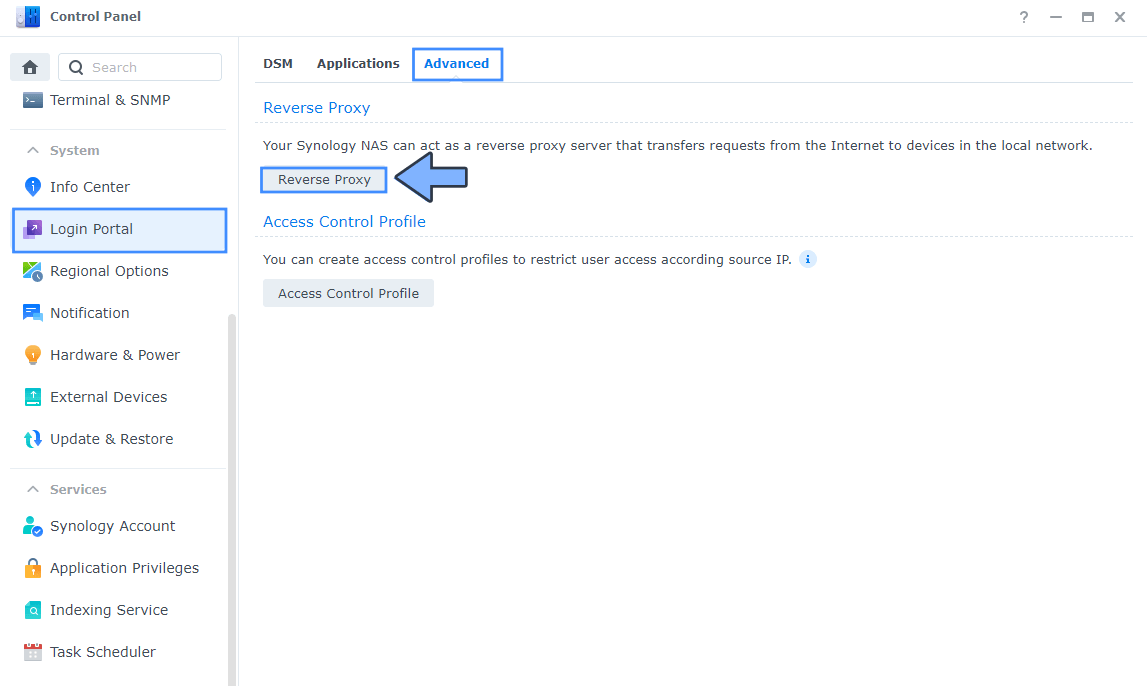
STEP 5
Now click the “Create” button. Follow the instructions in the image below.
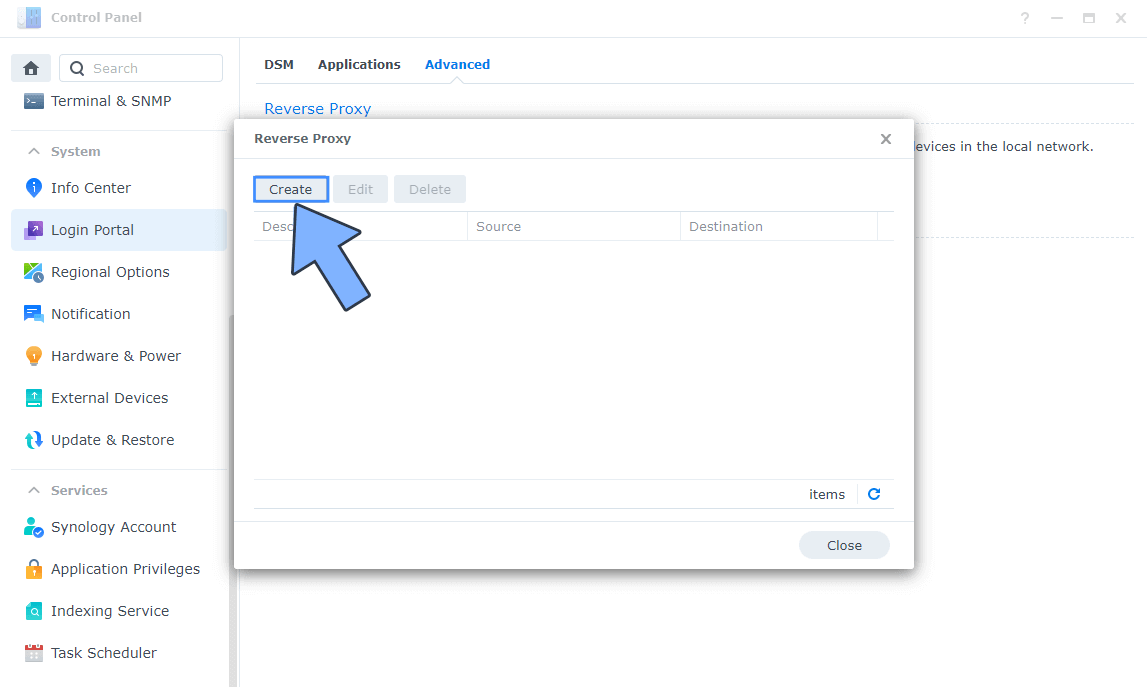
STEP 6
After you click the Create button, the window below will open. Follow the instructions in the image below.
On the General area, set the Reverse Proxy Name description: type in Wakapi. After that, add the following instructions:
Source:
Protocol: HTTPS
Hostname: wakapi.yourname.synology.me
Port: 443
Check Enable HSTS
Destination:
Protocol: HTTP
Hostname: localhost
Port: 7728
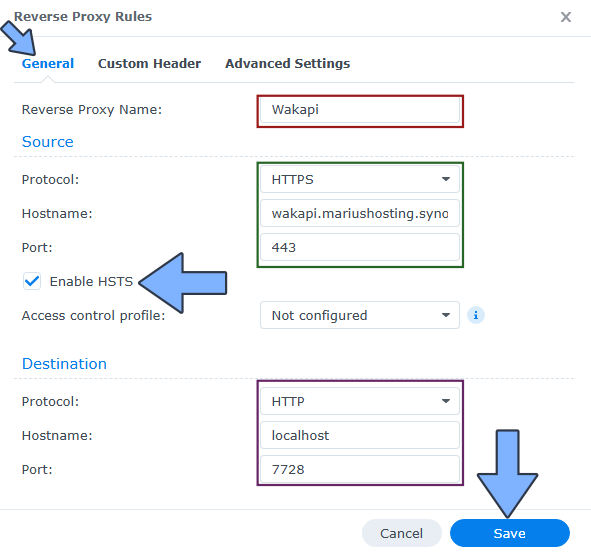
STEP 7
On the Reverse Proxy Rules, click the Custom Header tab. Click Create and then, from the drop-down menu, click WebSocket. After you click on WebSocket, two Header Names and two Values will be automatically added. Click Save. Follow the instructions in the image below.

STEP 8
Go to Control Panel / Network / Connectivity tab/ Check Enable HTTP/2 then click Apply. Follow the instructions in the image below.
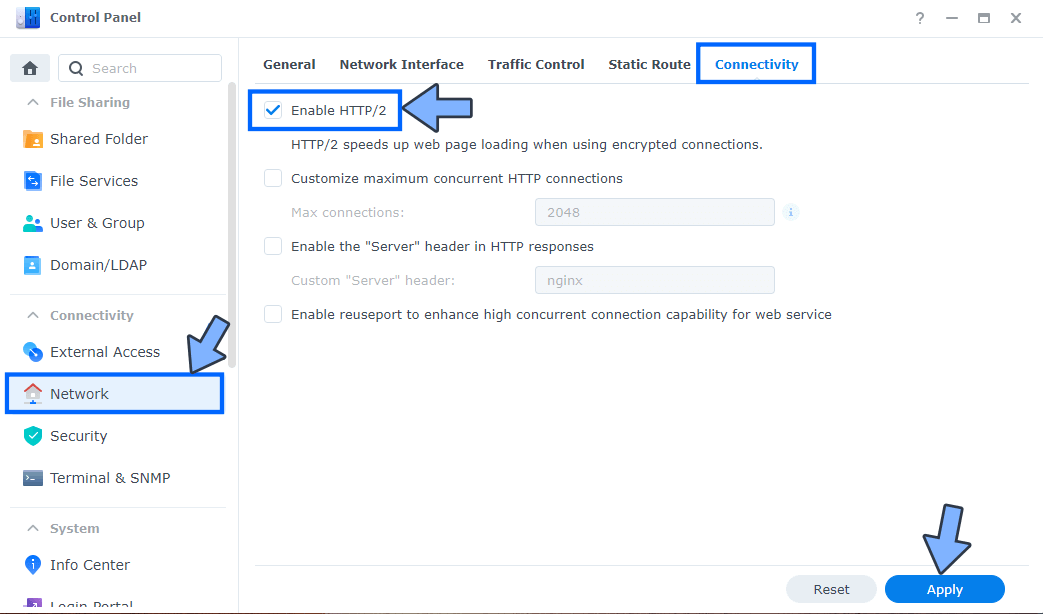
STEP 9
Go to Control Panel / Security / Advanced tab/ Check Enable HTTP Compression then click Apply. Follow the instructions in the image below.
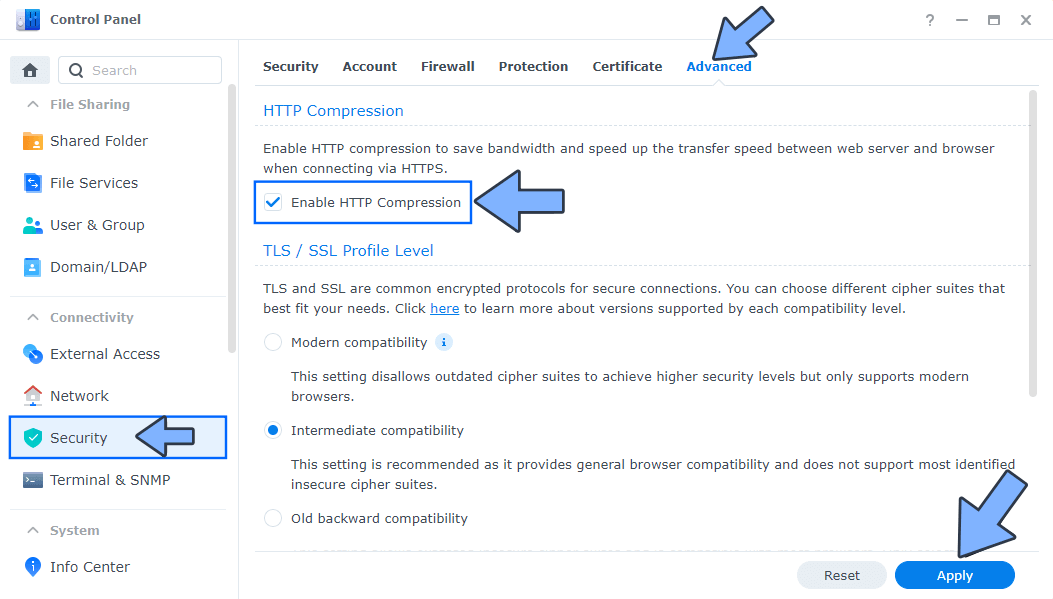
STEP 10
Go to File Station and open the docker folder. Inside the docker folder, create one new folder and name it wakapi. Follow the instructions in the image below.
Note: Be careful to enter only lowercase, not uppercase letters.
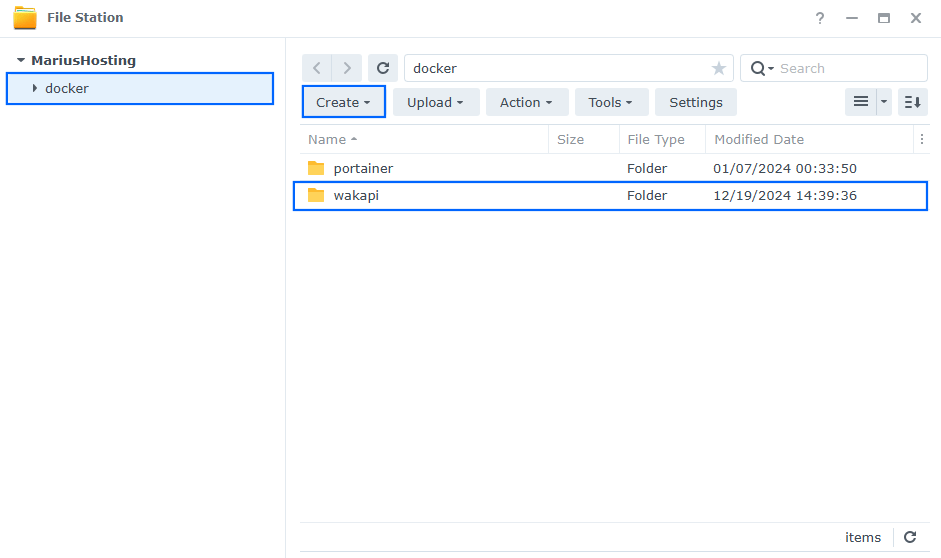
STEP 11
Now create two new folders inside the wakapi folder that you have previously created at STEP 10 and name them data and db. Follow the instructions in the image below.
Note: Be careful to enter only lowercase, not uppercase letters.
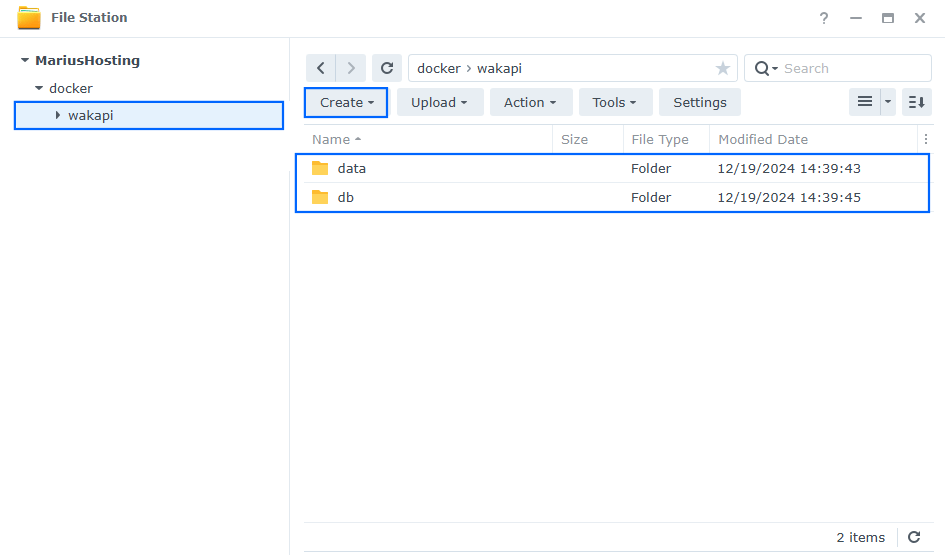
STEP 12
Follow my step by step guide on how to activate SMTP for your Gmail account. This step is mandatory. Note: If you don’t want to use the easiest way for SMTP with Google and you already have SMTP details from your own Mail Server, you can just skip this STEP and use your personalized email SMTP details instead.
STEP 13
Log into Portainer using your username and password. On the left sidebar in Portainer, click on Home then Live connect. Follow the instructions in the image below.

On the left sidebar in Portainer, click on Stacks then + Add stack. Follow the instructions in the image below.

STEP 14
In the Name field type in wakapi. Follow the instructions in the image below.
services:
db:
image: postgres:17
container_name: Wakapi-DB
hostname: wakapi-db
security_opt:
- no-new-privileges:true
healthcheck:
test: ["CMD", "pg_isready", "-q", "-d", "wakapi", "-U", "wakapiuser"]
timeout: 45s
interval: 10s
retries: 10
volumes:
- /volume1/docker/wakapi/db:/var/lib/postgresql/data:rw
environment:
POSTGRES_DB: wakapi
POSTGRES_USER: wakapiuser
POSTGRES_PASSWORD: wakapipass
restart: on-failure:5
wakapi:
image: ghcr.io/muety/wakapi:latest
container_name: Wakapi
hostname: wakapi
security_opt:
- no-new-privileges:true
healthcheck:
test: ["CMD-SHELL", "nc -z 127.0.0.1 3000 || exit 1"]
interval: 10s
timeout: 5s
retries: 3
start_period: 90s
ports:
- 7728:3000
environment:
ENVIRONMENT: prod
WAKAPI_PUBLIC_URL: https://wakapi.yourname.synology.me
WAKAPI_TRUSTED_HEADER_AUTH: true
WAKAPI_PORT: 3000
WAKAPI_DB_PORT: 5432
WAKAPI_DB_TYPE: postgres
WAKAPI_DB_USER: wakapiuser
WAKAPI_DB_PASSWORD: wakapipass
WAKAPI_DB_HOST: wakapi-db
WAKAPI_DB_NAME: wakapi
#WAKAPI_PASSWORD_SALT: ''
WAKAPI_LISTEN_IPV4: 0.0.0.0
WAKAPI_INSECURE_COOKIES: true
WAKAPI_ALLOW_SIGNUP: true
WAKAPI_MAIL_ENABLED: true
WAKAPI_MAIL_SENDER: wakapi
WAKAPI_MAIL_PROVIDER: smtp
WAKAPI_MAIL_SMTP_HOST: smtp.gmail.com
WAKAPI_MAIL_SMTP_PORT: 587
WAKAPI_MAIL_SMTP_USER: Your-own-gmail-address
WAKAPI_MAIL_SMTP_PASS: Your-own-app-password
WAKAPI_MAIL_SMTP_TLS: false
volumes:
- /volume1/docker/wakapi/data:/data:rw
restart: on-failure:5
depends_on:
db:
condition: service_healthy
Note: Before you paste the code above in the Web editor area below, change the value for WAKAPI_PUBLIC_URL and type in your own synology.me DDNS with https:// at the beginning that you have previously created at STEP 6.
Note: Before you paste the code above in the Web editor area below, change the value for WAKAPI_MAIL_SMTP_USER and type in your own Gmail address. STEP 12.
Note: Before you paste the code above in the Web editor area below, change the value for WAKAPI_MAIL_SMTP_PASS and type in your own Gmail app password. STEP 12.
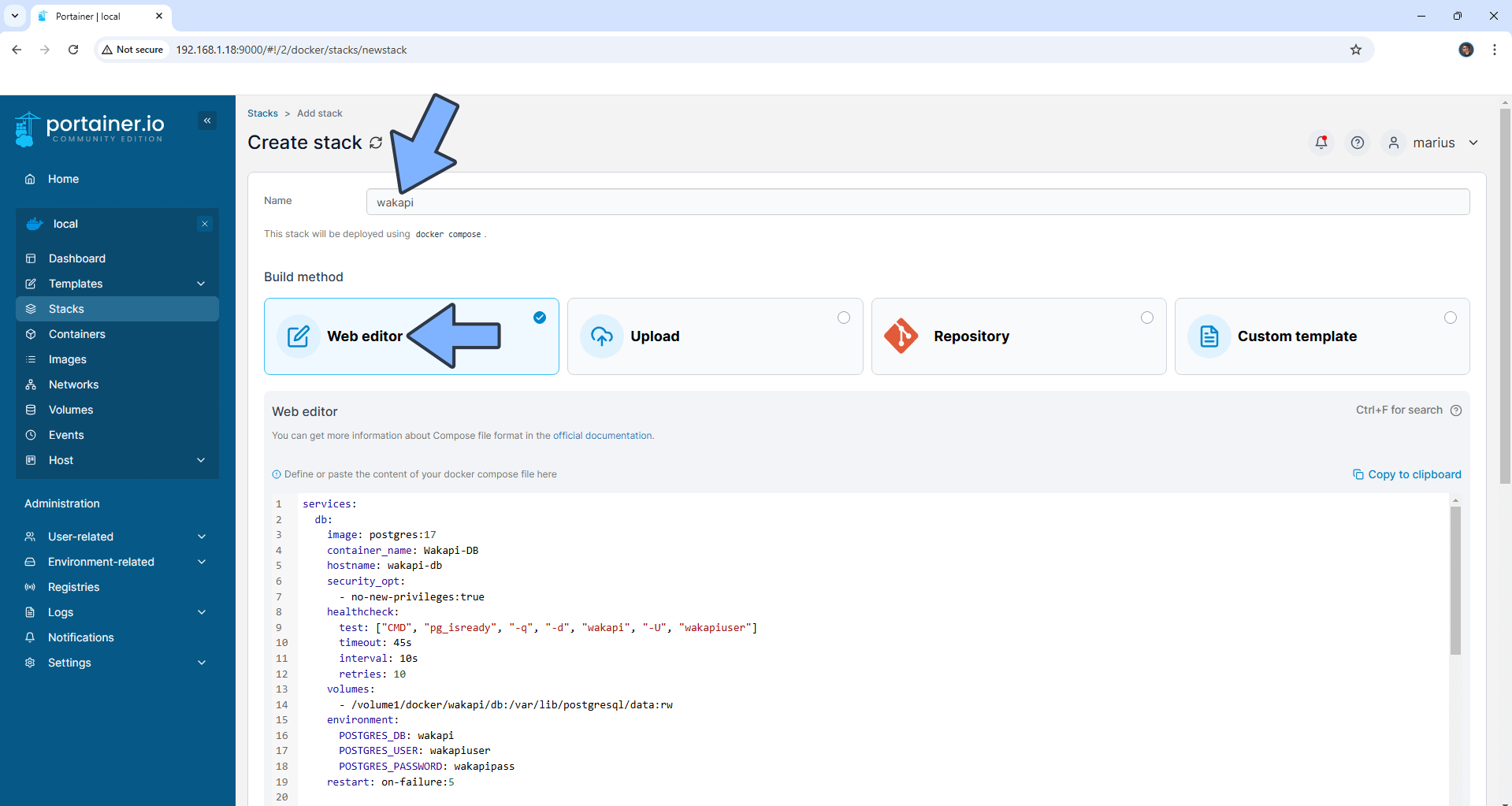
STEP 15
Scroll down on the page until you see a button named Deploy the stack. Click on it. Follow the instructions in the image below. The installation process can take up to a few minutes. It will depend on your Internet speed connection.
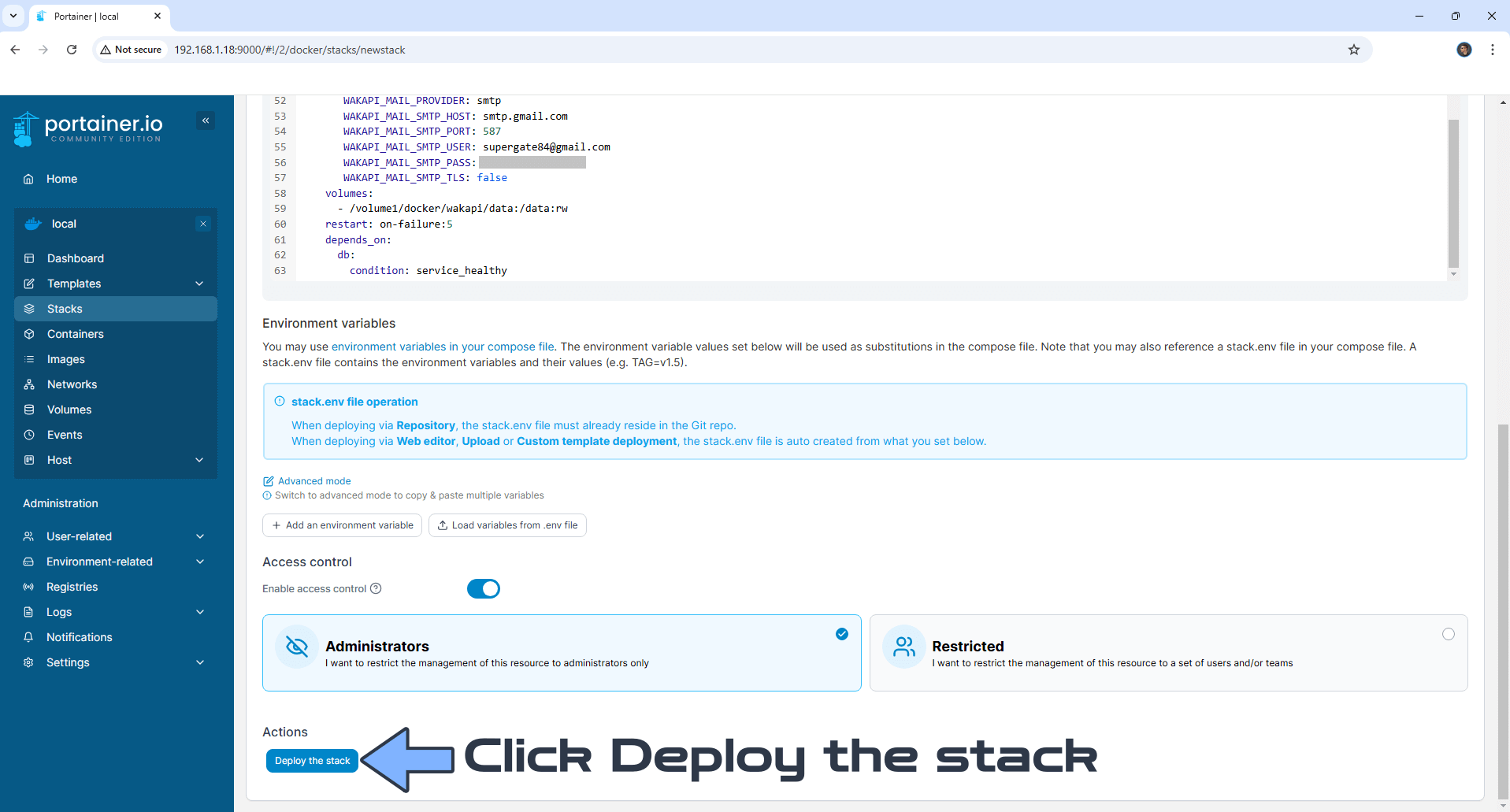
STEP 16
If everything goes right, you will see the following message at the top right of your screen: “Success Stack successfully deployed“.

STEP 17
🟢Please Support My work by Making a Donation. Almost 99,9% of the people that install something using my guides forget to support my work, or just ignore STEP 1. I’ve been very honest about this aspect of my work since the beginning: I don’t run any ADS, I don’t require subscriptions, paid or otherwise, I don’t collect IPs, emails, and I don’t have any referral links from Amazon or other merchants. I also don’t have any POP-UPs or COOKIES. I have repeatedly been told over the years how much I have contributed to the community. It’s something I love doing and have been honest about my passion since the beginning. But I also Need The Community to Support me Back to be able to continue doing this work.
STEP 18
Now open your browser and type in your HTTPS/SSL certificate https://wakapi.yourname.synology.me in my case https://wakapi.mariushosting.synology.me At the top right of the page, click Login. Follow the instructions in the image below.
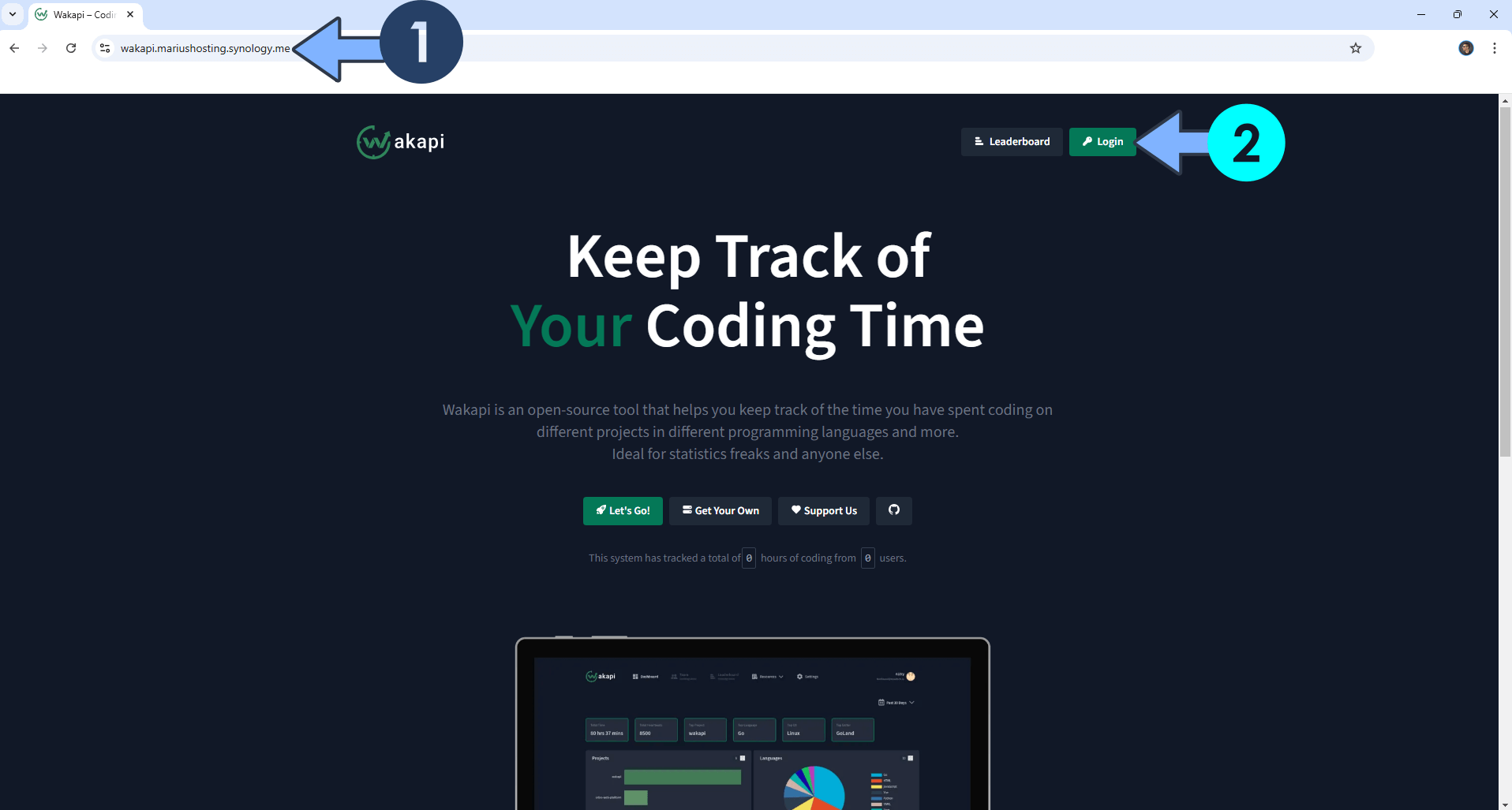
STEP 19
Click Sign up. Follow the instructions in the image below.
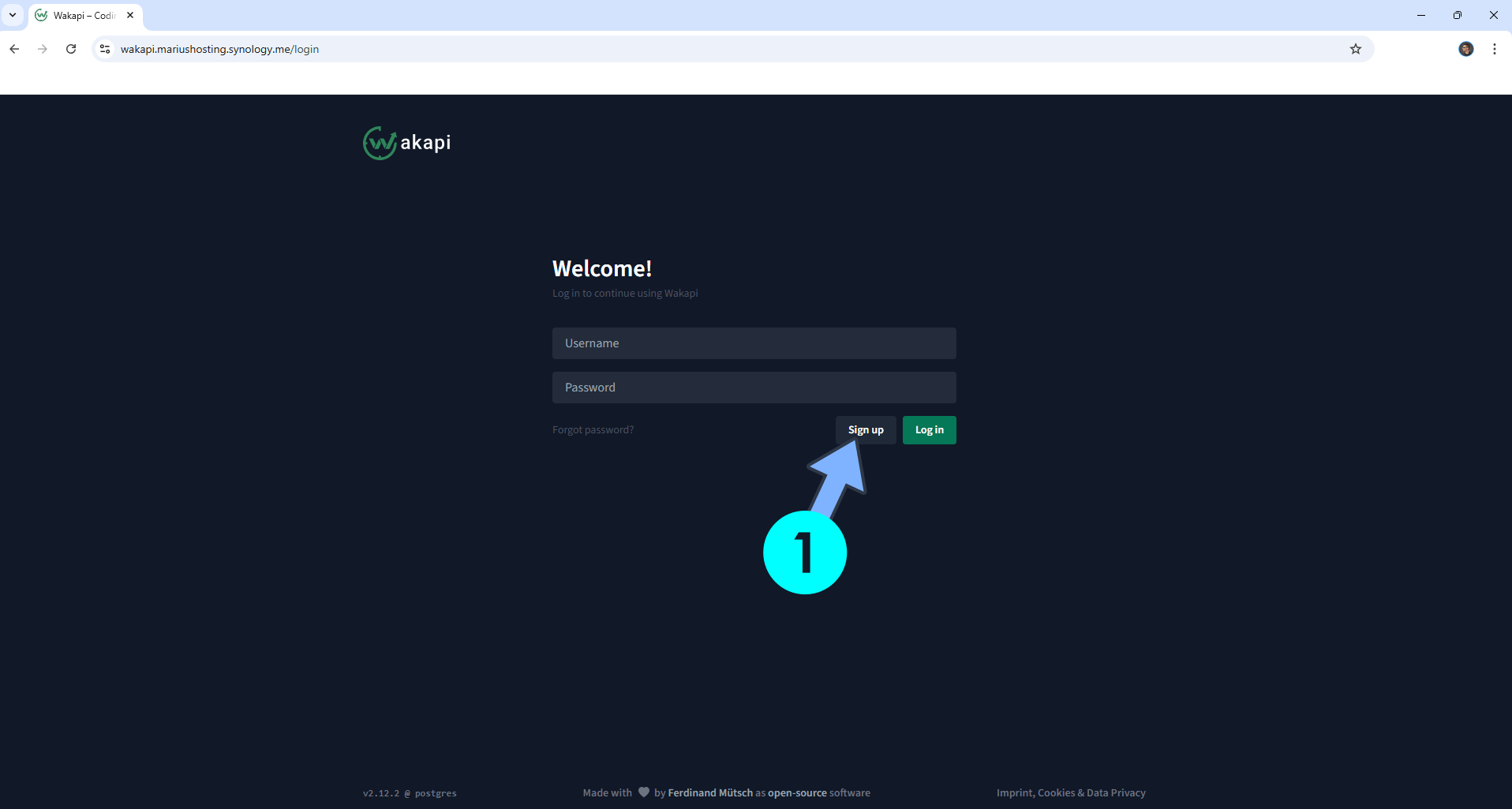
STEP 20
Type in your own details, then click Create Account. Follow the instructions in the image below.
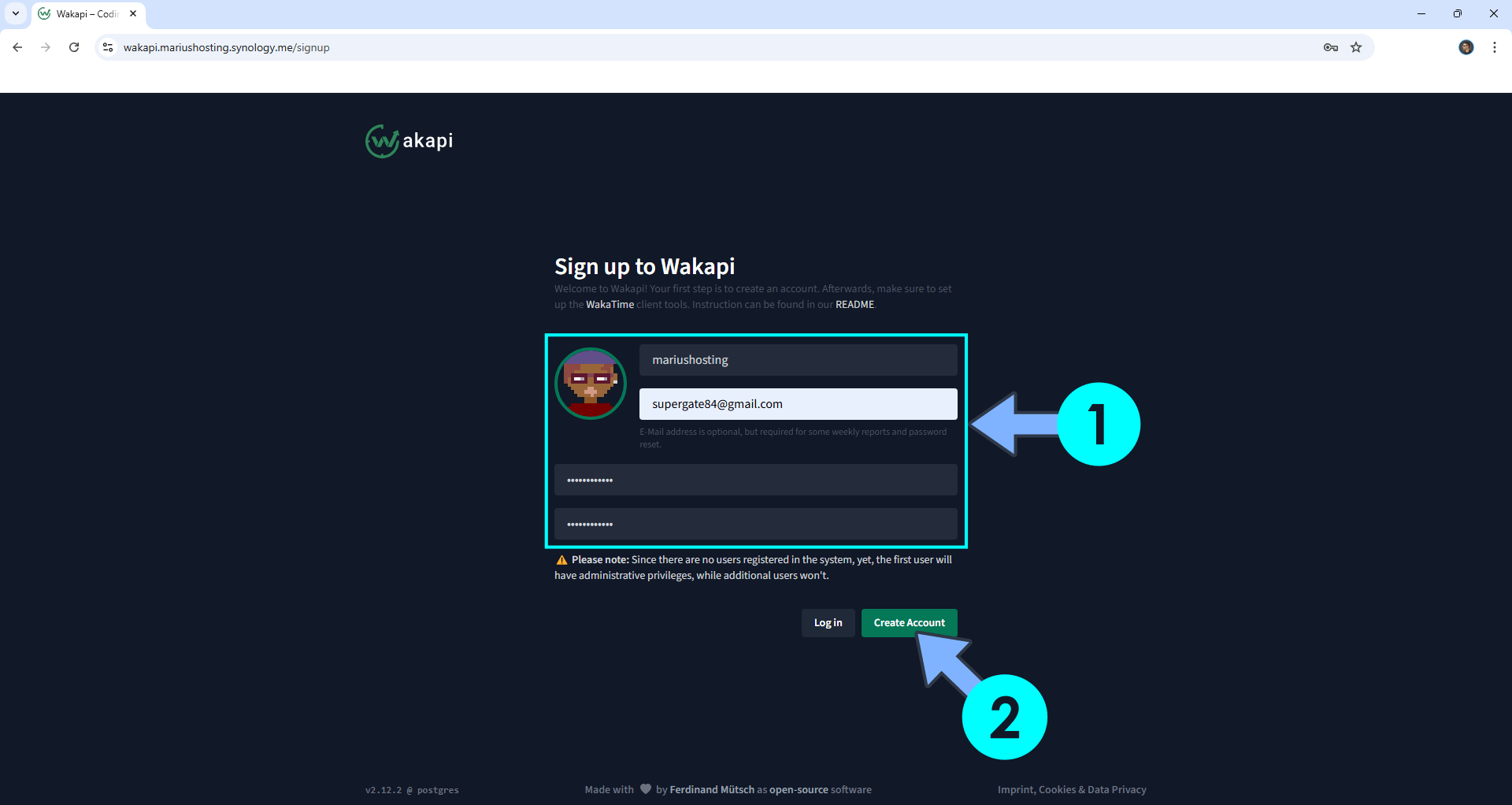
STEP 21
At the top right of the page, click Login. Follow the instructions in the image below.
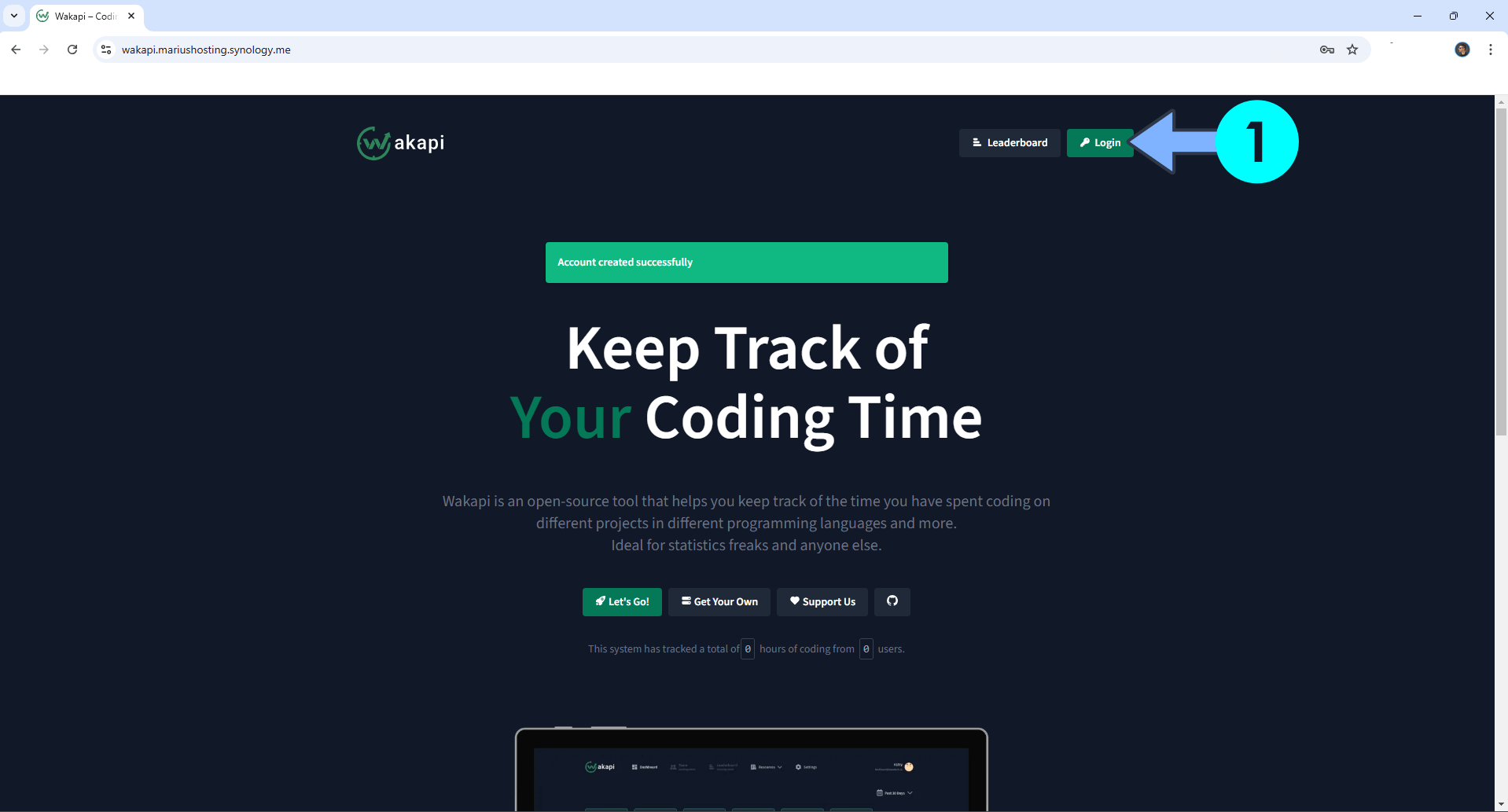
STEP 22
Type in your own Username and Password that you have previously created at STEP 20. Click Log in. Follow the instructions in the image below.
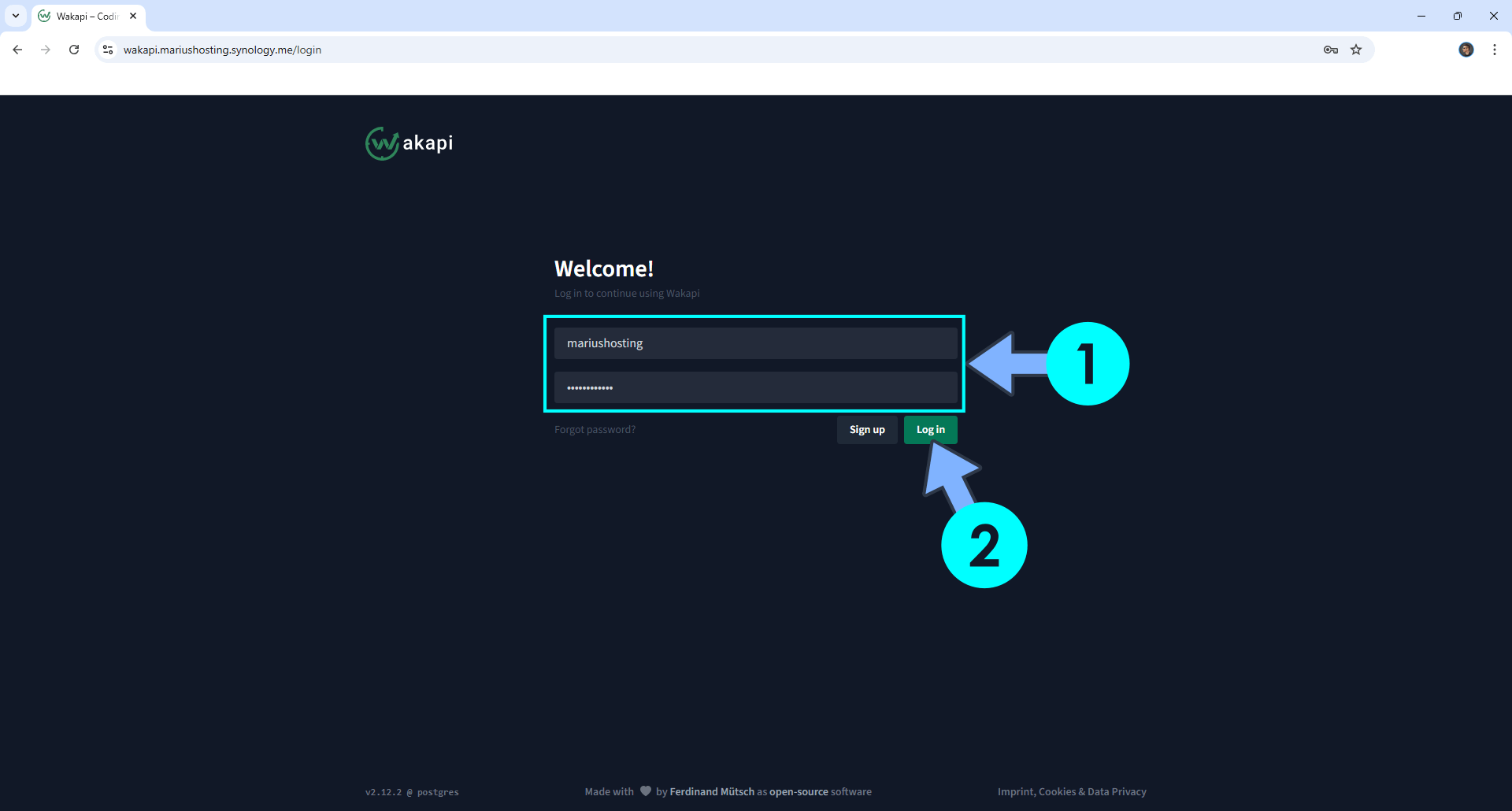
STEP 23
Your Wakapi dashboard at a glance!
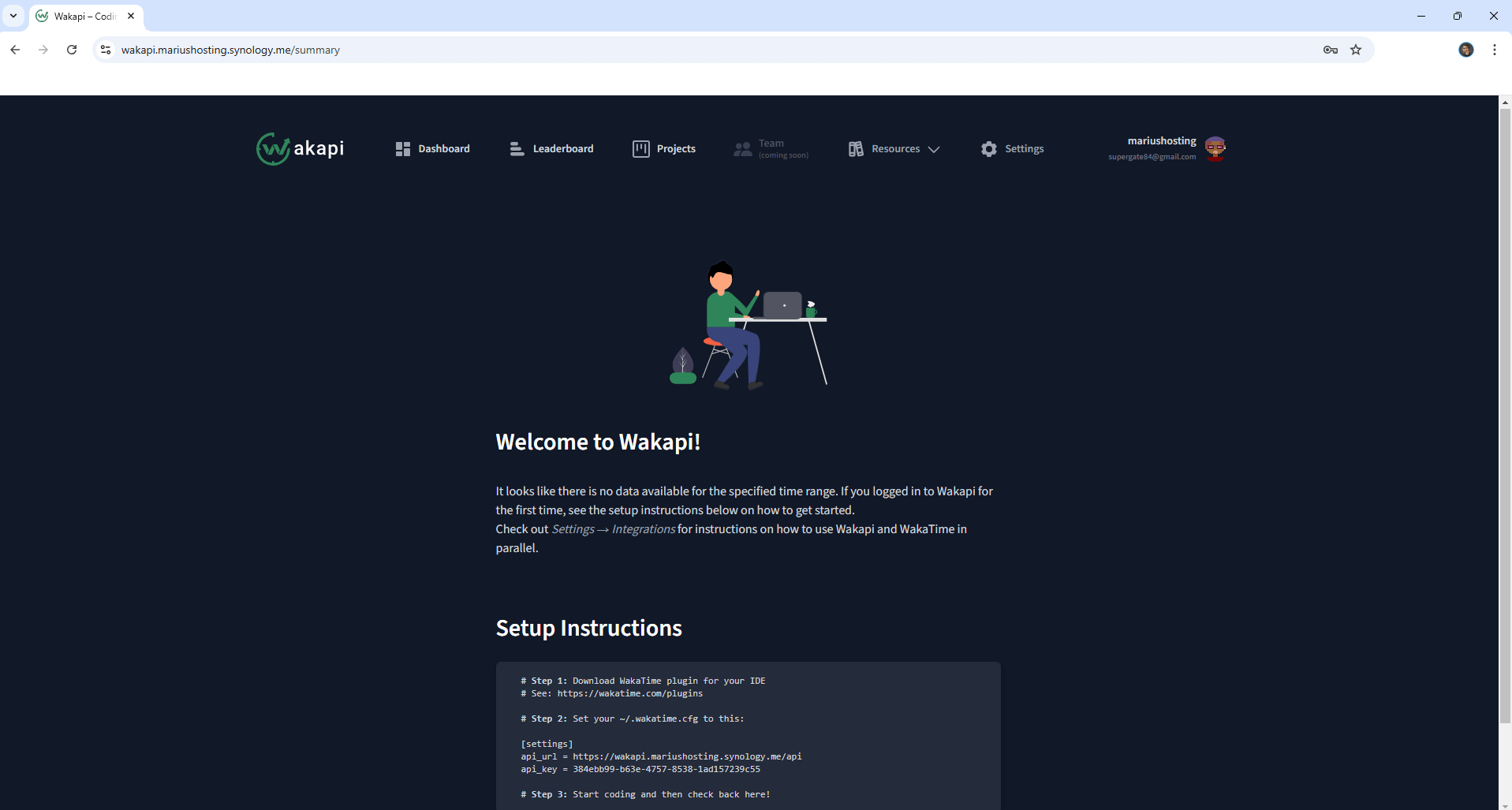
Enjoy Wakapi!
If you encounter issues by using this container, make sure to check out the Common Docker issues article.
Note: Can I run Docker on my Synology NAS? See the supported models.
Note: How to Back Up Docker Containers on your Synology NAS.
Note: Find out how to update the Wakapi container with the latest image.
Note: How to Free Disk Space on Your NAS if You Run Docker.
Note: How to Schedule Start & Stop For Docker Containers.
Note: How to Activate Email Notifications.
Note: How to Add Access Control Profile on Your NAS.
Note: How to Change Docker Containers Restart Policy.
Note: How to Use Docker Containers With VPN.
Note: Convert Docker Run Into Docker Compose.
Note: How to Clean Docker.
Note: How to Clean Docker Automatically.
Note: Best Practices When Using Docker and DDNS.
Note: Some Docker Containers Need WebSocket.
Note: Find out the Best NAS Models For Docker.
Note: Activate Gmail SMTP For Docker Containers.
This post was updated on Wednesday / August 27th, 2025 at 1:21 AM
